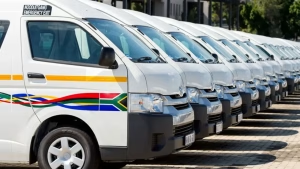
In today’s unpredictable world, having an emergency fund is more important than ever. It’s your personal financial safety net – a backup stash of money that helps you deal with life’s surprises without falling into debt.
This guide will show you why an emergency fund matters, especially if you’re living on a low income, and how you can start building one today.
What Is an Emergency Fund?
An emergency fund is money you set aside specifically for unexpected expenses — things like medical bills, car repairs, home emergencies, or sudden job loss. It helps you avoid taking on high-interest debt or borrowing money from friends and family.
Why You Need an Emergency Fund
Having an emergency fund gives you freedom and peace of mind. Here’s why it’s so valuable:
- Avoid Going Into Debt: If you don’t have savings, you might end up using credit cards or loans to handle emergencies. That can lead to expensive interest and long-term debt.
- Stay on Track with Goals: With money saved up for emergencies, you don’t need to touch your long-term savings or retirement fund.
- Reduce Financial Stress: Knowing you have something to fall back on can give you confidence and lower anxiety during tough times.
How Much Should You Save?
A good goal is to have at least 3 to 6 months’ worth of basic living expenses saved up. But if that feels like too much right now, start small. Even R1,000 or R5,000 can help in a small emergency.
How to Start an Emergency Fund on a Low Income
Even if money is tight, you can still build an emergency fund. Here are simple steps to get started:
1. Set a Small, Realistic Goal
Start with a target like R500, R1,000, or R2,000. Reaching that first goal will motivate you to keep going.
2. Track Your Spending
Use a budget app or notebook to see where your money goes. Cut back on non-essential expenses and redirect that money into your savings.
3. Save a Little Every Month
Even R50 or R100 a month adds up over time. Make saving a habit, no matter how small the amount.
4. Automate Your Savings
Set up a debit order or automatic transfer to your emergency fund every payday. This way, saving becomes automatic.
5. Save Unexpected Money
Put bonuses, birthday money, tax refunds, or any extra cash straight into your emergency fund.
Where to Keep Your Emergency Fund
Use a separate savings account that’s easy to access in emergencies but not too easy to dip into. A high-interest savings account or a 32-day notice account can be a good option.
Tips to Stay on Track
- Don’t mix your emergency fund with everyday spending money.
- If you use the money, refill it as soon as you can.
- Review your savings goal every few months and adjust if needed.
Final Thoughts
Building an emergency fund takes time, but it’s 100% worth it. It’s one of the smartest financial moves you can make — even more so if you have a low income. Start small, be consistent, and celebrate every milestone.
Your future self will thank you.






